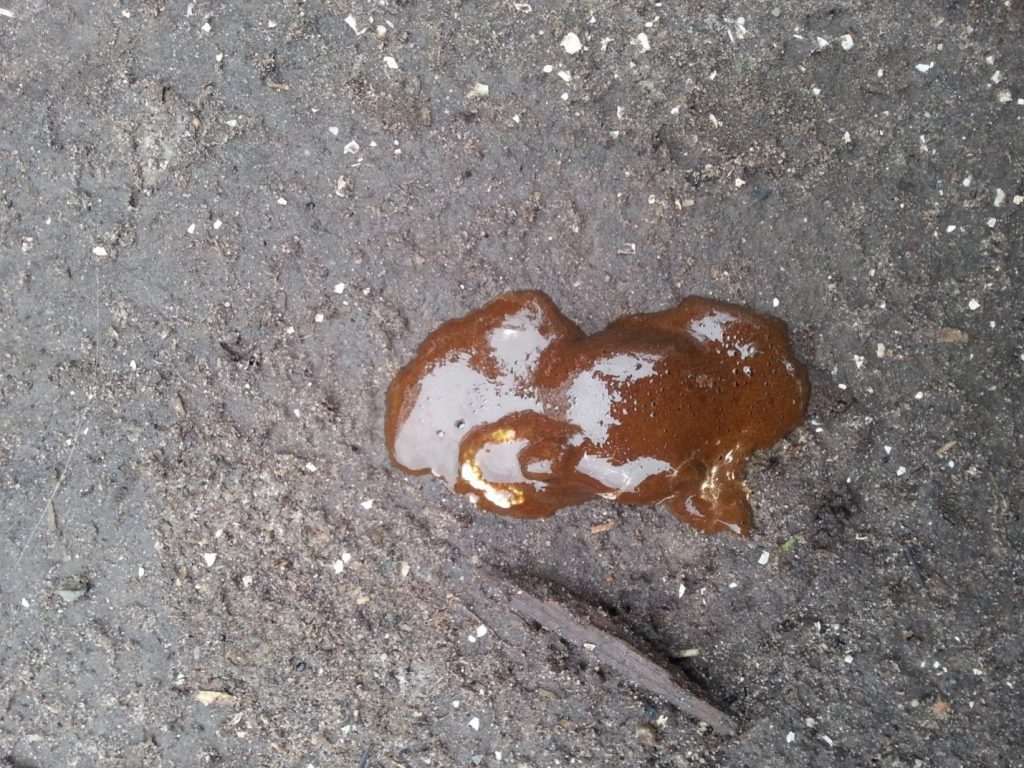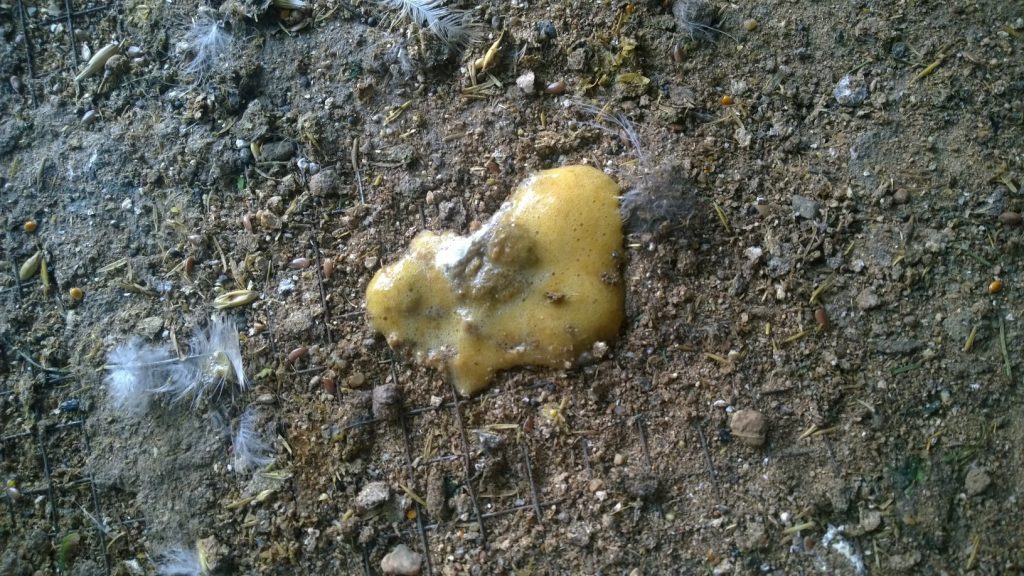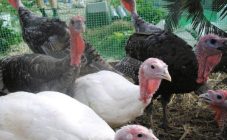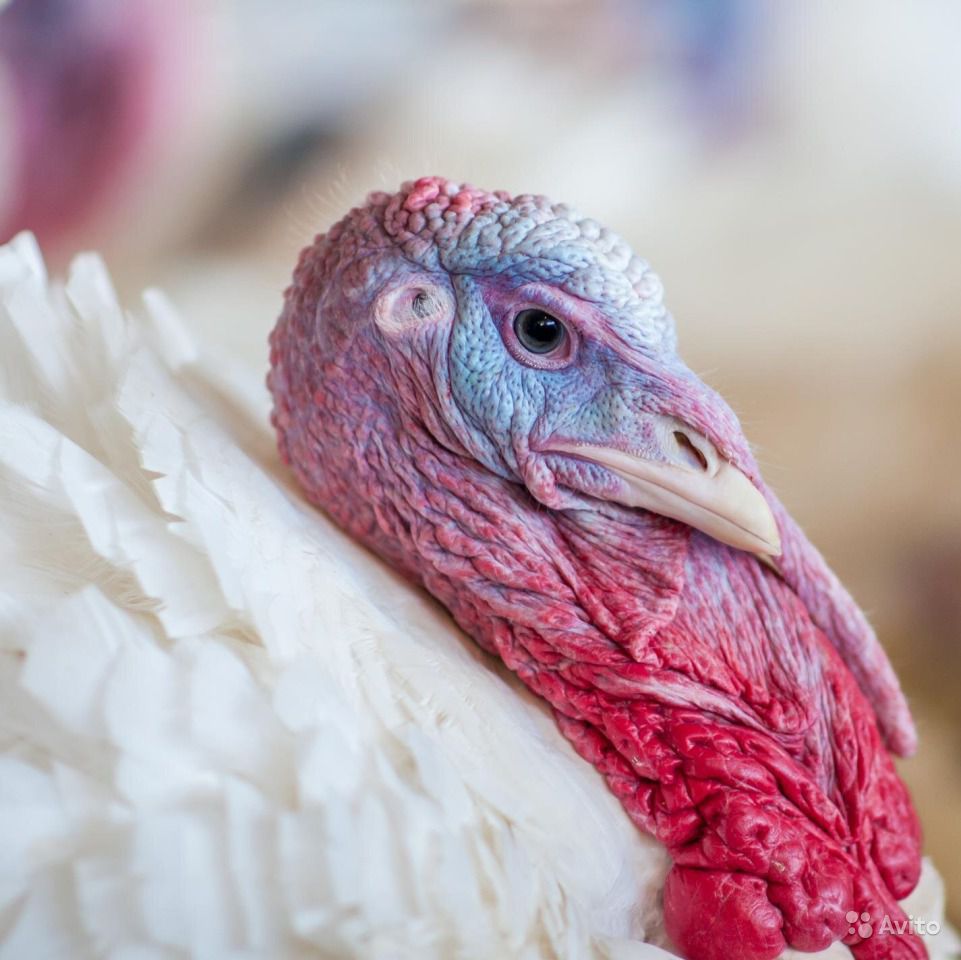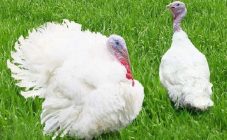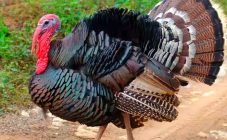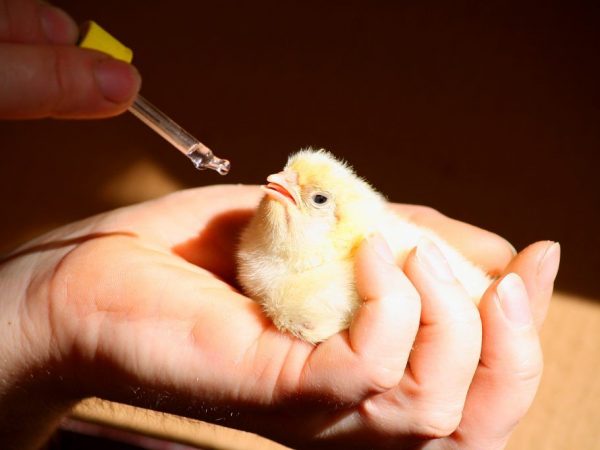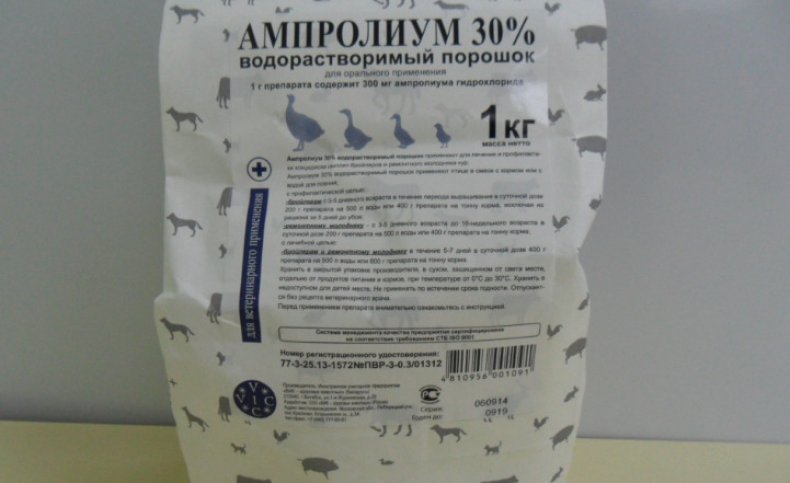Content:
When breeding turkey poults, diarrhea leads to the highest mortality among young livestock. It is a common disease among poultry and occurs for many reasons.
Diarrhea causes
The reasons for the occurrence in turkeys include:
- Diarrhea can occur due to the ingestion of harmful agents into the body of a bird: viruses, intracellular parasites, bacteria or coelenterates.
- If young poultry is not properly fed, poults experience feeding stress, which also leads to diarrhea. Stress comes from problems with the diet, eating spoiled or poorly digested foods. Often it occurs due to a change in diet.
- Under improper housing conditions, high or low temperature or humidity, dirty rooms and an untimely change of litter, or with too small an aviary for poultry, young animals also often begin to vilify.
- Turkey poults can become fat due to overuse of antibacterial drugs. Antibiotics have a deadly effect not only on pathological microorganisms, but also on the beneficial microflora of the gastrointestinal tract of the animal, which leads to dysbiosis, one of the symptoms of which is diarrhea. If you try to cure this disease with antibiotics, turkey poults may die.
Typical external signs of health problems in young birds are lethargy, inactivity, tousled and dull feathers, and refusal to eat. It is worth examining in more detail the products of the act of defecation in turkey poults and, if possible, call a veterinarian.
Types of diarrhea
Under the normal state of the organism, the droppings in healthy young animals are brown or greenish in color and have a granular shape. When trying to scrub them off the floor, they peel off easily without deformation or strong odor. If the litter of the young is liquid, has a fetid odor, includes blood or food particles, you should start to panic.
The stool can vary significantly in color, from which it is possible to diagnose the cause of the diarrhea. Diarrhea colors in turkey poults:
- In turkey poults, brown diarrhea indicates nutritional problems. Practically non-lethal, but significantly weakens the immune system, which can lead to many other diseases. Stool can be light to dark brown in color. It occurs most often due to the use of boiled eggs. With a decrease in their amount in the diet or switching to balanced feed, it usually goes away by itself. For treatment, you can also add finely chopped nettle or wormwood to the turkey feed.
- A mustard hue most often indicates the presence of histomonosis or Newcastle disease. The putrid microflora of the gastrointestinal tract gives a green color to the fecal masses. The histomonads that lead to this disease are intracellular parasites that live in the intestines and liver. The bird will refuse food and liquid, will lose weight, the plumage will become dull, disheveled. Treatment is with antibiotics designed to kill these parasites, such as metronidazole. In the case of a long course among turkeys, a high mortality is possible.Histomoniasis quickly spreads throughout the house, therefore, if such a pathology is detected, it is better to separate healthy birds from patients in another aviary. If Newcastle disease is the cause of mustard stools, you should see your veterinarian immediately. This is a very dangerous disease that can lead to the death of the entire livestock, therefore, birds will need to be vaccinated.
- With white diarrhea with a lot of blisters in turkeys less than 20 days old, it means salmonellosis, or pullorosis. This is an infectious disease that occurs in young livestock in an acute form, and in adults in a chronic one. Differs in high lethality and speed of spread throughout the herd. With frothy diarrhea, the cubs will constantly squeak, they will have difficulty breathing and will gather in heaps and shrink. With a simple white liquid diarrhea, the most common cause is avitaminosis of birds, with a fecal mass similar to chalk, having a monotonous consistency, this can be the result of many viral or bacterial diseases. In this case, you can try to drink the chicks with a weak solution of potassium permanganate or decoction of chamomile. If this does not help, it is worth seeking specialized help.
- A change in feed additives leads to a yellow tint of diarrhea. If a poultry farmer noticed yellow diarrhea in turkeys, he does not know how to treat it, do not despair. You can drink a young livestock of birds with a solution of potassium permanganate and return to the previous diet or try to replace food additives with some others. Another cause of yellowish diarrhea is Newcastle disease, described above. It affects the nervous system, lungs and respiratory tracts, and many other internal organs. In turkeys with Newcastle disease and yellow feces, limbs are most often taken away, and the bird remains motionless. In this case, only a veterinarian can prescribe how to treat yellow diarrhea in turkey poults after additional diagnostics of the virus that led to such symptoms.
- Why do turkeys have black liquid feces? It arises from difficulties in the work of the gastrointestinal tract. Due to inflammation, the intestinal mucosa is damaged and a small amount of blood gets into the feces, which gives the feces a black color. It can also occur due to pathological microorganisms that have settled in the intestines of birds, most often coccidia. Sick individuals should be separated from the breeding herd and drunk with potassium permanganate.
Diagnosis of diarrhea in turkeys
The color of fecal matter in a sick bird can provide the veterinarian with enough information to establish a preliminary diagnosis. To determine the health of the bird, the doctor may examine its feathers and behavior. If there is a suspicion of protozoonosis, additional studies or an autopsy of a bird that has died from diarrhea will be required. When breakdowns are found in the mucous membrane of the gastrointestinal tract, the diagnosis is most often made on the spot. If an additional examination is necessary, the specialist will examine the internal organs, especially the liver, stomach and lungs, based on the condition of which he will make a final diagnosis and prescribe treatment.
Diarrhea in turkeys: how to treat at home
In order to cure turkey poults from the disease, you can try using folk remedies. They are used with an eye to the duration and severity of the gastrointestinal tract disorder. In the early stages of inflammation, it is quite possible to treat some types of diarrhea on your own, without resorting to the help of a specialist. However, this applies only to diseases caused by improper nutrition or maintenance conditions. If the problem appeared due to the spread of infectious diseases caused by viruses or bacteria, or excessive activity of coelenterates in the body of the bird, you should contact your veterinarian.Since it is possible to get rid of these parasites in the bird's body only by using specialized means, with the dosage of which a layman may have problems. In addition, excessive use of antibiotics most often leads to a weakening of poultry, a decrease in its productivity and a decrease in the quality of meat.
If, nevertheless, a decision is made to carry out the treatment on its own, it is worth taking the following measures:
- with a single or insignificant spread of infection among the livestock, select and send sick birds to quarantine;
- clean the place where birds are kept, replace the bedding, decontaminate the premises;
- change feed for livestock;
- isolated chicks, in order to cure diarrhea, are prescribed a course of taking sorbents - activated carbon or its analogues;
- turkey poults can be watered with chamomile or nettle solutions and start drinking with an increase in the amount of liquid;
- lock the flock of birds in quarantine for up to 1 month.
Before starting treatment, poults should be kept without food for a day, while providing an abundant amount of liquid. As a drink, it is worth pouring something with an anti-inflammatory effect, for example, a decoction of nettle or chamomile or a solution of potassium permanganate. If it is not available, you can use furacilin. It is advisable to use antibiotics only for white or mustard-colored diarrhea.
Outbreak response
If birds are significantly affected by diarrhea, it will be necessary to get rid of the root cause of the disease, since diarrhea is just a symptom of the disease that provokes diarrhea.
Getting rid of the disease will require an accurate diagnosis, for which you should definitely contact a veterinarian and carry out medication, which should be prescribed by a specialist. Medicines against bacteria and viruses for treatment are mixed with food or dissolved in water. The list of drugs for diarrhea includes:
- Fluoroquinol antibiotics (ofloxacin, ciprofloxacin). The volume of the drug is calculated from the proportion of 1 ml of solution to 1 liter of pure water. With the tablet form of the drug, 10 mg of the drug is consumed per 1 kg of bird weight.
- Antibiotics of the tetracycline group (tetracycline, biomycin) give young animals 5-10 mg each, adult turkeys twice as much.
- Antibacterial agents (levomecitin, floron) are added to the water in a proportion of 3-4 ml of the agent per 1 liter of water.
- Furazodolin is given to young animals at 10 mg, for breeding stock - 15-20 mg.
To restore the damaged microflora, the chicks are given probiotics during the course of treatment, for example, monosporin, acylact, lactobacterin. In order not to spend money on pharmacological agents, fermented milk products can be added to the feed during the course of treatment.
At the final stages of treatment, you will need to water the turkey poults with vitamin and mineral complexes mixed with food or water. Vitamin therapy stops after the sick bird has fully recovered. For these purposes, aminovital, vitaminol, chiktonik are suitable. At the same time, you should not give the chicks sugar-containing solutions in order to prevent an increase in the number of pathogenic organisms in the intestines.
Prevention
In order to prevent diarrhea in poultry in the future, it is worth taking the following measures:
- chicks should be kept separately from the adult livestock;
- the room in which the birds live must be clean, light and ventilated;
- young livestock should be fed only with compound feed intended for them, adding fermented milk products, while completely eliminating spoiled food;
- when a sick turkey appears, isolate it, and drink all the rest with medicine.
In any case, you should not arrange self-medication, but it is better to immediately call a specialist who will make an accurate diagnosis and prescribe the necessary drugs. In an independent fight against diarrhea in turkey poults, on the contrary, you can only make it worse.
